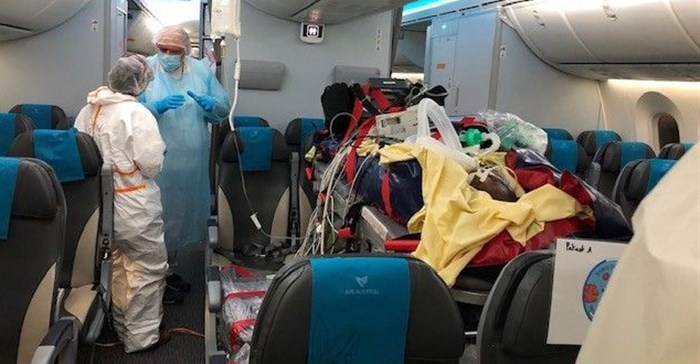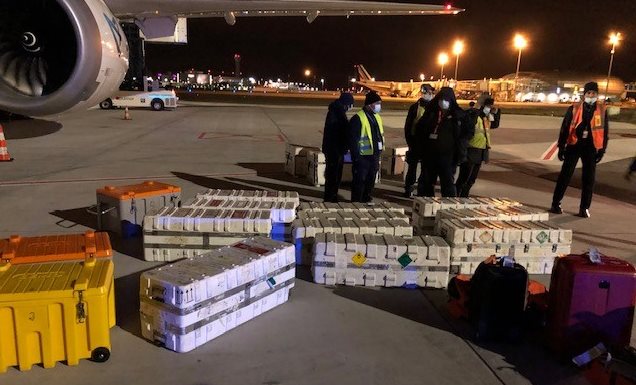World's first ICU Covid-19 patient long-haul repatriation
The complex operation was commissioned by the French Ministry of Health and coordinated by the International SOS in collaboration with the SAMU, the emergency medical services in France, the Regional Health Agency, Air Austral and Aéroports de Paris.

“Transporting one or two seriously ill patients is part of everyday life. This particular situation was highly unique and even more complex, with all four patients in an unconscious and intubated-ventilated condition. Medical evacuations, particularly during the pandemic, are complex but this was even more so, requiring an even greater level of care and coordination, says Dr Arnaud Derossi, regional medical director at International SOS.
Evacuation details
The chartered Air Austral Boeing 787 took off from Réunion Island at 9:33 p.m. local time (6:33 p.m. Paris time) on 4 March and landed at Paris Charles-de-Gaulle airport on Friday 5 March at 5:15am local time, after an 11-hour flight. A civil aviation exemption had been necessary to allow Air Austral to embark so many patients on stretchers and such a high volume of oxygen.
The mission was staffed by the SAMU from Paris and La Réunion, with five ICU doctors, five ICU nurses, seven EMTs and one logistician, while International SOS provided a flight nurse and a logistics expert for supporting the various teams and interfacing with the aircraft crew and the International SOS Paris assistance centre.

The centre's role was to interface with the various SAMUs, the airport and the aircraft, under supervision by the health ministry crisis centre, planning for and managing all requirements. Also, a critical aspect was to be able to quickly react in case of the aircraft diversion due to a technical incident, in order to prepare ground support for the patients.
Due to the severity of the disease, advanced equipment was loaded and installed on the aircraft such as portable blood analysers, ultrasound machine and two ECMO (extracorporeal membrane oxygenation) machines, as well as backup ventilators. This represented one ton of medical equipment, along with 9,500 litres of oxygen for each patient.



































